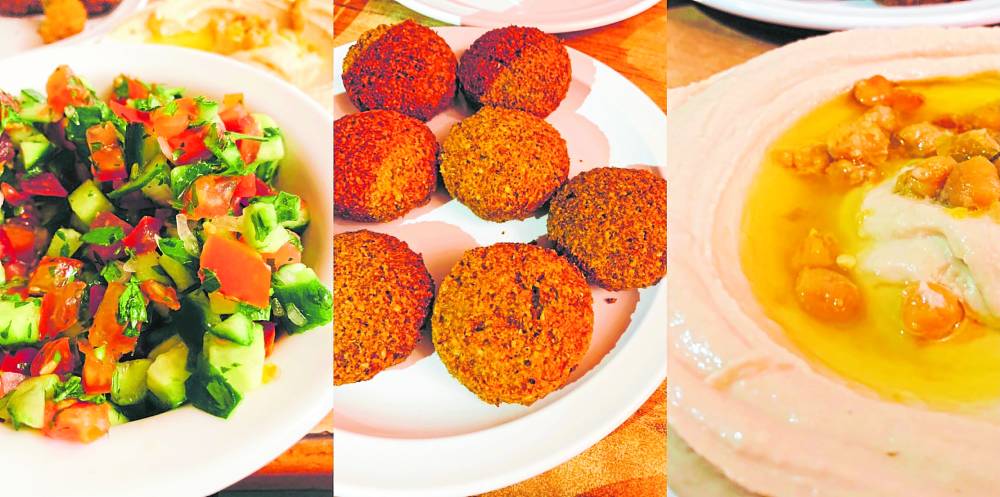Eat well during Ramadan

BEFORE AND AFTER FASTING Early in the morning and after sunset meal options during Ramadan. —Margaux Salcedo
On Thursday, March 23, Muslims around the world began fasting for the holy month of Ramadan.
Ramadan is the ninth month in the Islamic calendar, considered one of the holiest months for Muslims. It falls on a different date every year, depending on the cycles of the moon. This year, Ramadan started on the evening of March 22 and will end on the evening of April 21.
This holy month is marked by a period of fasting or sawm, which is considered a pillar of Islam, alongside faith or shahada, prayer or salah, charity or zakat, and making the pilgrimage to the holy city of Mecca or hajj.
The fast is from sunrise to sunset, when you cannot eat or drink anything, not even water! But before sunrise and after sunset, there are eating rituals. The early morning meal is called suhoor while the meal after sunset is called iftar.
That is why the fast is only done by people in good health. People who are sick, pregnant or even breastfeeding are exempt. Children and even those who are traveling are also excused.
The suhoor or the predawn meal must provide enough energy to last you throughout the hours of fasting. It can include meat, preferably lean meat such as skinless chicken and fish, as well as other protein-rich food such as low-fat dairy products or calcium-fortified soybean milk. Eggs are also highly recommended because they make you feel full while also being rich in protein.
You can also eat a lot of rice or oatmeal for energy or other high-fiber carbohydrate foods such as bread. It is also essential that you eat a lot of fruits and vegetables for the vitamins, minerals and phytochemicals that are vital for good health.
Iftar should also have meat, rice, vegetables and fruits. Although traditionally, dates are eaten at the start of Iftar to symbolize the breaking of the fast. Nutritionally, this is also a great source of energy and since it is rich in potassium, dates also help muscles and nerves to function well. But don’t eat too much because dates are also high in sugar.
Meanwhile, it is also recommended to avoid greasy and fried food at iftar, such as fried dumplings, oily curries, even pastries, as these are loaded with fat and then stored in the body as fatty tissue. Eating these may cause acidity and indigestion.
There are some really delicious rice recipes for iftar. One of the more interesting ones I came across is sabzi polo with fish. This is essentially saffron rice made rich with spices, herbs and tender, fried fish, with tutong at the bottom, like our paella. Another one is jackfruit biryani, which again uses saffron rice mixed with caramelized onions and then layered with tender, curried jackfruit. For a traditional Arabian rice dish, try roz ma mucasarat, which also uses saffron as well as pine nuts, pistachio, walnuts and cashew nuts mixed with the rice.
Of course, there are always the classic Middle Eastern favorites: falafel, spice-roasted carrots with lentils, dal and for sweets, good ol’ baklava.
Remember, though, that the meals are just meant to sustain you. The point is to deny yourself such meals to teach one self-control, reinforce one’s piety and faith, seek forgiveness, and be mindful of God and His blessings. In fact, every Muslim is obliged to make a donation to charity, called zakat al-fitr, which is a charitable donation of food that must be given before Eid prayer, before the end of the month of Ramadan. It is a very compassionate kind of almsgiving, meant to help poor people also celebrate Eid al-Fitr, the festival to break the fast of Ramadan.
While I am Catholic, I pray that the blessings of the Lord be upon our Muslim brothers and sisters especially this Ramadan. May you find strength of spirit and inner peace as you feed your soul and reconcile with the Lord in this holy month of fasting. Ramadan kareem!